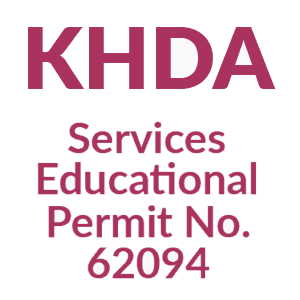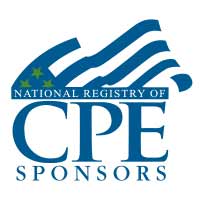Classroom Sessions:
| Date | Venue | Fees | |
|---|---|---|---|
| 27 - 31 May 2024 | London - UK | $5,950 | |
| 15 - 19 Jul 2024 | Dubai - UAE | $5,950 | |
| 02 - 06 Sep 2024 | London - UK | $5,950 | |
| 21 - 25 Oct 2024 | Dubai - UAE | $5,950 | |
| 25 - 29 Nov 2024 | London - UK | $5,950 |
Online Sessions:
| 27 - 31 May 2024 | Online | $3,950 | |
| 21 - 25 Oct 2024 | Online | $3,950 |
INTRODUCTION
This GLOMACS Business Financial & Accounting Skills training course addresses key issues, such as cost analysis, continuous improvement of cost assignment, budgeting, management control, and performance evaluation. In so doing, training course pushes delegates to understand the cause-and-effect relationship among business strategy and vision, operational objectives, measures and targets, as well as advanced performance measurement and reporting.
Effective planning and control entails developing skills that go far beyond mastery of any one discipline.
This Business Financial & Accounting Skills training course focuses on:
- Master the Finance and Accounting jargon to understand business processes
- Cost Analysis for Budgeting Purposes and Decision Making
- Financial and Operational Measures to support the budgeting process
- Best Practices to Manage Organizational Performance
- Link Strategy to Costing and Performance Evaluation
Objectives
- Understand the Finance and Accounting jargon
- Learn Costing and Budgeting Terminologies used in business
- Determine full costs of outputs for the goods and services provided
- Master traditional techniques and recent best practices
- Link Finance and Operation for Budgeting Purposes and Strategy Execution
- Learn How to Build a Comprehensive Performance Measurement System
Training Methodology
This Business Financial & Accounting Skills training course will be conducted along workshop principles with formal lectures, case studies and interactive worked examples. Relevant case studies will be provided to illustrate the application of each tool in an operations environment. Each learning point will be re-enforced with practical exercises. Difficult mathematical concepts are minimized and handled in a visual way that is easy to understand with examples demonstrated.
Organisational Impact
- Cost and Budgeting awareness will be enhanced
- Higher chances to select a budgetary system that works
- Broadened knowledge of performance management techniques
- Better attitude to link cost and budgeting to strategy and performance measurement
- Deeper understanding of cause and effect relationship for budgeting purposes
- Better awareness of non-financial implications of budgeting
Personal Impact
- Delegates will understand the costing and budgeting methods most useful to them
- They will understand how to construct a relevant and efficient budget
- They will learn to evaluate the usefulness of costing techniques in accurately calculating and ensuring profitability
- They will reinforce and expand their knowledge by linking budgeting to strategy and performance measurement
- They will broaden their understanding by linking financial and operational issues
WHO SHOULD ATTEND?
- Financial Professionals, Finance Controllers Treasurers and Inventory Professionals
- Senior Professionals with a direct responsibility for Financial Management and Control
- Accountants, Planners, & Cost Professionals
- Any professional who has responsibility for any portion of the planning process
- Any professional, at a medium and senior level, who is a part of the financial decision making team
- New interns and trainees with finance related responsibilities
DAY 1
Management and Financial Accounting: Key Concepts and Terminologies
- Identify the Major Differences and Similarities between Financial and Managerial Accounting
- Understand the Role of Management Accountants in an Organization
- Linking Strategy to Planning and Costing
- The Key Role of Budgeting and Cost Control in Contemporary Organizations
- Towards a Cross-Functional Process-View of the Organization
- Understand Your Processes: Integrating Financial and Non-financial Aspects
- Understanding The Financial Statements
DAY 2
Cost Analysis
- What is Costing?
- Cost Concepts and Terminology
- Different Costs for Different Purposes
- Fixed vs. Variable Costs: The Cost-Volume-Profit Analysis Model
- Contribution Margin Analysis
- Manufacturing vs. Non-manufacturing Costs
- Period vs. Product costs: Inventory Evaluation and Control
DAY 3
Traditional vs. Advanced Techniques in Cost-control
- Under-costing and Over-costing: The Consequences for Profitability
- How to refine a Costing System?
- Indirect vs. Direct Costs
- Traditional Cost Allocations Systems vs. Activity-Based Costing
- Cost Hierarchy & Cost Drivers
- Linking Resources, Activities and Management
- Introducing Activity-Based Budgeting and Management
- Video, Case Study and Examples
DAY 4
Budgeting: Flexible Budgets and Variance Analysis
- The Role of Budgeting
- Define the Master Budget and Explain Its Major Benefits to An Organization
- Describe the Difference between a Static Budget and a Flexible Budget
- Compute Flexible-budget Variances and Sales-volume Variances
- Discuss The Behavioral Implication of Budgeting
- The Budgeting Process in Your Organization: How to improve it?
- Which tools shall we use to complement Budgeting and Costing?
DAY 5
Measuring Corporate Performance: The Balanced Scorecards and Six-Sigma
- Broadening Performance Measurement Systems
- The Key Role of Customer Satisfaction and Business Process Re-engineering
- Beyond Budgeting: Integrating Financial and Non-financial Issues
- Introducing The Balanced Scorecard
- The Key Perspectives
- Introducing The Strategy Maps
- Introducing Six-Sigma
- On successful completion of this training course, GLOMACS Certificate will be awarded to the delegates
- Continuing Professional Education credits (CPE) : In accordance with the standards of the National Registry of CPE Sponsor, one CPE credit is granted per 50 minutes of attendance
Endorsed Education Provider
GLOMACS is registered with the National Association of State Boards of Accountancy (NASBA) as a sponsor of continuing professional education on the National Registry of CPE Sponsors. State boards of accountancy have final authority on the acceptance of individual courses for CPE credit. Complaints regarding registered sponsors may be submitted to the National Registry of CPE Sponsors through its website: www.NASBARegistry.org
In Association With

PetroKnowledge
Our collaboration with Petroknowledge aims to provide the best training services and benefits for our valued clients

Oxford Management Centre
A GLOMACS - Oxford Management Centre collaboration aimed at providing the best training services and benefits to our valued clients.



